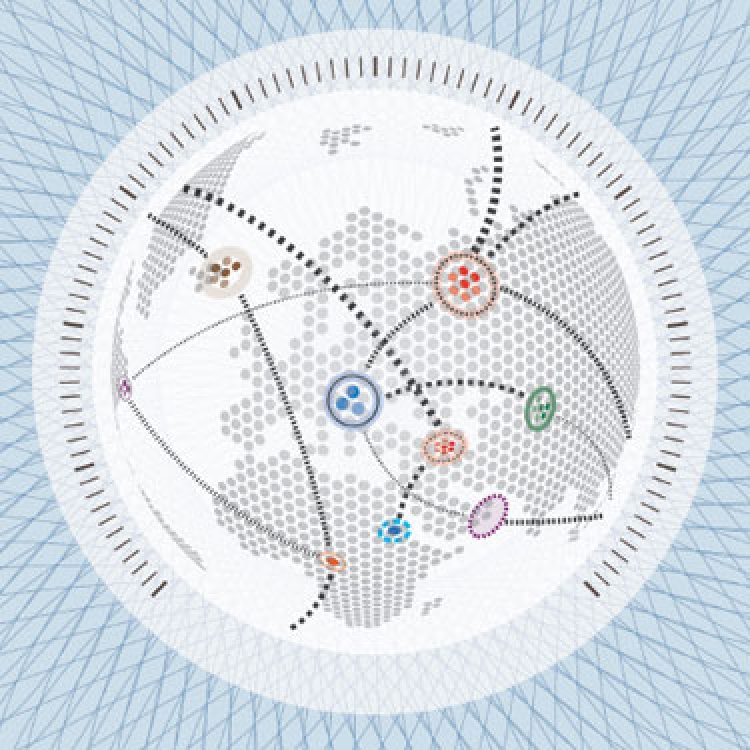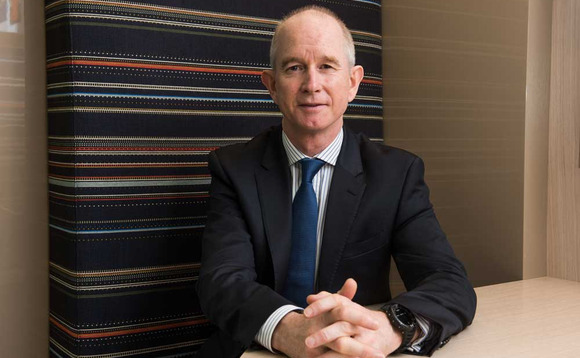John Scott interview: "Tomorrow's risks require global collaboration"

Economic inequality, societal polarisation and intensifying environmental dangers are the top three trends that will shape global developments over the next 10 years, according to the World Economic Forum's Global Risks Report 2017 published last month.
What does this mean for businesses, risk managers and the insurance industry? Jessica Titherington spoke to John Scott, CRO for Commercial Insurance at Zurich Insurance Group and a member of the WEF report's advisory board, to find out.
How will 2016 be remembered?
Last year was about the crystallising of political risks. Not just the election of a new president of the USA and the Brexit vote, but also political shifts in Italy and Australia, and the impeachment of the political leadership in Brazil and South Korea.
These outcomes may have been a surprise, but actually the underlying theme to all of this has been visible since the financial crisis in 2008. Austerity measures, quantitative easing, societal issues such as mass immigration and growing income disparity, have all created fertile ground for populist politicians. With the advent of the “post-truth” society and the closing of the civil society space in response to security concerns, along with obvious challenges for individual privacy, it's a troubling time for Western democracy.
The WEF's Global Risks Report has been going 12 years. How have global risks shifted over that time?
Leading up to and in the aftermath of the 2008 financial crisis, economic risk came to the fore. Over time, these risks have translated into societal risks, such as the impact of mass immigration, and geopolitical risks, such as interstate conflict and terrorism.
Having said that, economic risks are never far below the surface. Under-employment, asset bubbles and a banking sector under stress are all realities and it won't take much for a political crisis to trigger an economic crisis.
Register now for the Airmic webinar on the WEF Global Risks Report 2017
John Scott, Chief Risk Officer for Commercial Insurance at Zurich Insurance Group and Mark Weil, Chief Executive Office of Marsh UK and Ireland will present the outcomes of the World Economic Forum 2017 Global Risks Report in an Airmic webinar at 3pm on 15 February.
Is the world a risker place today?
There is no absolute measure of global risk; all you can say is that the risks have changed, and the perception of risks has changed.
The hallmark of today's risks is that they are all truly global in scope and interconnected. It is therefore very hard for one individual, business or country to address these risks and therefore we need a multi-lateral response.
The report scrutinises the impact of the "fourth industrial revolution". What was the key message?
Emerging technology can certainly provide solutions for some of today’s global problems, but there are also risks. Changing liability frameworks and governance of artificial intelligence are two key challenges that new technologies and new business models bring. For example, driverless cars will remove the risk of driver error but shift personal third-party liability risk into the corporate space into areas such as product liability, PI or cyber risk in response to software/hardware failure or cyber-attack. Each business needs to work out how and why their risk profile is changing as a result of these technologies and work out what they’re going to do about it.
Some people can only see the opportunities of new technology while some people focus too much on the downside. We need a productive discussion in the middle – a true understanding of the risk and benefits.
What are the key takeaways for risk managers?
Although many of the risks outlined in the report are intangible or seemingly far-removed from day-to-day operations, the consequences of these risks are felt by all businesses. What organisations and their risk managers must do is consider these risks at all levels of the business and recast them in light of their business strategy.
Take political unrest, for example. What might this mean for your supply chain? How can your business build resilience into its products or services that could be affected? Do you need to build in more flexibility and maybe increase costs in order to maintain your reputation?
These are the sorts of questions businesses should be asking themselves as they read the report.
For risk managers, it can be hard to get some of these topics heard at board level. But risk is becoming more of a boardroom topic, especially with the Financial Reporting Guidance. The WEF report is a fantastic tool to enable risk managers to have this conversation with their boards. My advice would be to take the report and turn it into a strategic communication with senior management.
How should the insurance industry respond to the future global risks?
The insurance industry has been around a long time and covers a very broad suite of risks, but insurance is not a risk strategy on its own and it has never been designed to be a silver bullet for global problems.
Today’s risks require global collaboration and new ideas and I think the insurance industry has an important role to play. Take the challenge of social protection systems such as health care and pension provision in ageing, indebted societies. This is going to require new thinking if we are to address the challenges of longevity, and a partnership between the public and private sectors will be key. I think the insurance industry will be well-placed to play an important role.
The Global Risks 2017 report provided the backdrop for the WEF meeting in Davos last month. What message do you hope it portrayed?
Responsible leadership. The risks facing the world are huge and no one individual can solve today's global problems which is why today's leaders – whether they are business leaders, political leaders or risk leaders – need to step up to the mark and work together.
Top 5 trends that determine global developments
- Rising Income and wealth disparity
- Changing climate
- Increasing polarization of societies
- Rising cyber dependency
- Ageing population
Source: World Economic Forum Global Risks Perception Survey 2016.

John Scott - Chief Risk Officer for Commerical Insurance, Zurich Insurance
